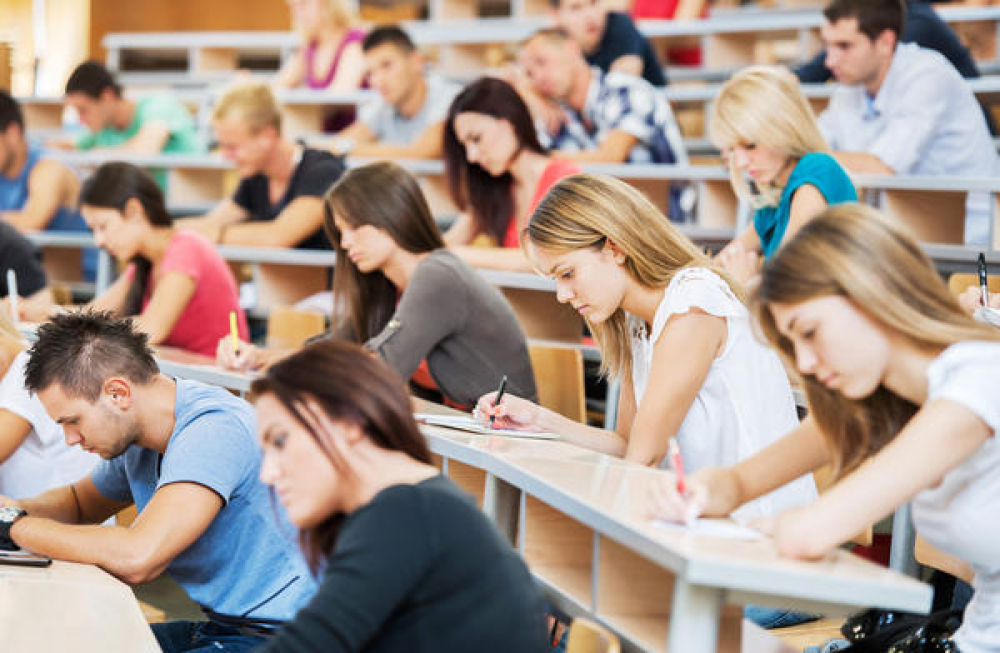Successes and horizons of Russian higher education
Образование в РоссииМеждународное образование
What is the competitiveness of higher education, how much success has Russia achieved in this area and how are the positions of Russian universities changing in the world subject rankings, says Nadezhda Polikhina, head of the 5-100 Project Office.
In recent years, there has been a noticeable increase in the competitiveness of Russian higher education in the international education market. What is competitiveness, why is it so important and what exactly indicates an increasing recognition of Russian education in the world?
The notion "competitiveness" in the field of education came from the economy, almost completely retaining its meaning. The competitiveness of education on a global scale is the ability of the national education system to compete in the global scientific and educational market, based on the provision of higher quality of education and its greater accessibility in comparison with other countries.
In recent decades, competition in the field of education has intensified to a large extent, more and more countries are involved in it. Russia also joined the competition for the recognition of its education on a global scale. Why is it so important for our country? We want our children to be competitive in the labor market, including the global one, and our country to be strong with notable potential for further development.
What indicates the increase in the competitiveness of Russian education? Probably the most important factor is the increase in the number of foreign students studying in Russian universities. If a person does not consider education in this university and in a given country to be promising, why should one go to this country and to this university? It is very important that foreign students from the regions that are not “traditional” study in Russia (e.g., there is a tendency to increase the number of students from European countries, including Germany, France, and Italy). The proportion of students from European countries is still very small. But over the past five years, the number has more than doubled: from 1.3 thousand in 2012 to 2.7 thousand in 2017 (in this case, only students enrolled in undergraduate programs, specialties, graduate programs, i.e., students who have chosen Russian universities for long-term studies). There is a substantial growth in the number of students from Asian countries, especially from China. In the 2012/2013 academic year, 26.9 thousand students from Asian countries, including 9.2 thousand from China, studied at Russian universities, and in the 2017/2018 academic year, these figures were respectively 47.4 thousand and 16,3 thousand students. At the same time, it is vital to understand that many countries compete to attract more foreign students, but an increasing number of foreign students choose Russia as a country that can provide them with a quality education.
Starting from 2012, the number of foreign students studying at Russian universities grows annually: while in 2012, 164.8 thousand foreign students studied at Russian universities, and according to preliminary data, in 2018 this figure reached 309 thousand people. Such a positive trend indicates that Russian higher education is becoming more attractive for foreigners with its quality recognized abroad.
The next key factor indicating the growth of the competitiveness of Russian education is a significant improvement of its positions in the world's leading university rankings (ARWU, QS, THE). In general, from year to year, Russian universities demonstrate positive dynamics in the rankings. Thus, according to the analysis carried out by the QS ranking, Russia became the fifth in the world in terms of average national growth in 2018, entering 6% of the best countries in the world in terms of improving positions in the overall QS ranking.
By the end of 2018 the number of Russian universities entering top 200 leading World University Rankings by Subject was 18. In this case, both institutional and subject ranking are taken into account. In the top 500 world rankings, 28 Russian universities represented (in comparison, the indicator of 2012 – 7 HEIs).
Many Russian universities are already among the hundred best universities in the world in certain subject areas, such as Physics, Mathematics, Linguistics, Sociology, Politics and International Studies, Computer Science and Information Systems, Mineral & Mining Engineering, Materials Science. At the same time, the number of Russian universities in the top 100 subject rankings increased from one university in 2012 to eleven in 2018.
This now means that 11 Russian universities have reached such universities as, e.g, Cambridge, Harvard, Oxford, probably each of us heard of them as the undisputed leaders in higher education.
It is essential that Russian universities occupy higher positions in certain subject areas than many "stars" that are in the top 100 of the overall QS ranking. And even in those areas where traditionally Russian universities were not considered to be strong. For example, HSE in the subject rating "Sociology" overtakes Southampton of University and Johns Hopkins University, NUST "MISiS" in the subject ranking "Engineering – Mineral and Mining" is ahead of the University of Illinois. In this way, some Russian universities are already equal among the best now.
At the same time, Russian universities are represented not only in the subject, but also in the general rankings, which indicates an increase in their competitiveness in a wide range of activities: the quality of education is improving, science is developing, research is being conducted on the most relevant topics in the world, the reputation of Russian universities as the world's leading research and educational centers is being formed.
As a result, the release of 2018 overall QS ranking represents 27 Russian universities, and 35 Russian universities are included in the THE.
Is that much or little? How many universities are included in the rankings in those countries that are considered to be reference standard in terms of quality of education? For example, according to the results of the general QS ranking, it includes 157 universities from the USA, 76 universities from the UK, 45 from Germany, 8 from Austria. However, if you look at the ratio of the number of universities included in the ranking and the total number of universities in the country, you will see the following picture: in the United States, this figure is about 3.4%, in Russia - about 3.5%. For European countries, this figure is indeed much higher: Great Britain - about 45%, Germany - 25%, Austria - 20%.
These figures are approximate and largely determined by the size of the country, features of the higher education system, as well as the understanding of the notion “university”. In European countries, in most cases, educational institutions that have postgraduate studies (doctoral studies) are considered to be “universities”, in Russia and the United States, higher educational institutions are not obliged to train Ph.D/Doctorate student. It is the difference in the approaches to the notion “university” in many respects influencing the difference in the designated indicators between Russia, the USA and European countries. At the same time, this gap shows that the Russian education system has much to strive for. Both the authorities and the universities offer real activities to reduce such gap and bring Russian education to higher global positions.
It is worth mentioning that these gaps begin to shrink gradually. The number of Russian universities in the leading world rankings increases year by year, while in a number of European countries (in the United Kingdom, Germany, the Netherlands, Finland, Austria) and the USA, the number of universities included, for example, in the overall 2018 QS rating has remained unchanged, and in France has even declined.
When it comes to improving competitiveness, it shall be understood that it is not enough to grow, one need to grow faster than the rest of the world. Otherwise, the efforts will not be seen within the global market. To sum it up, Russia is taking first but quite confident steps to increase the competitiveness of its education. And these steps have been taken in the right direction and notable results have already been obtained.
